The One Where I Cross Borders
On Independence
Growing up, the Fourth of July was always the perfect picture of an all-American summer. I loved marching in the morning parade, waving my American flag while sporting red-white-and-blue everything, and then jumping in the bright-blue pool to escape the sticky heat in the afternoon. The finale of this perfect summer day came when dusk descended upon our town. Instead of the normal suburban silence, people trucked their barbeques and lawn chairs to the parks and high school baseball fields hours before the show would start. My family and friends would wait in nervous anticipation for the show (which always ran late) to light up the beautiful summer night. And then, just as we would be contemplating whether to return home and watch it on TV in the comfort of our AC, it would start. The bright colors and loud bangs captured the attention of everyone, from small children to grown adults, as we stared up at the lights in the sky.
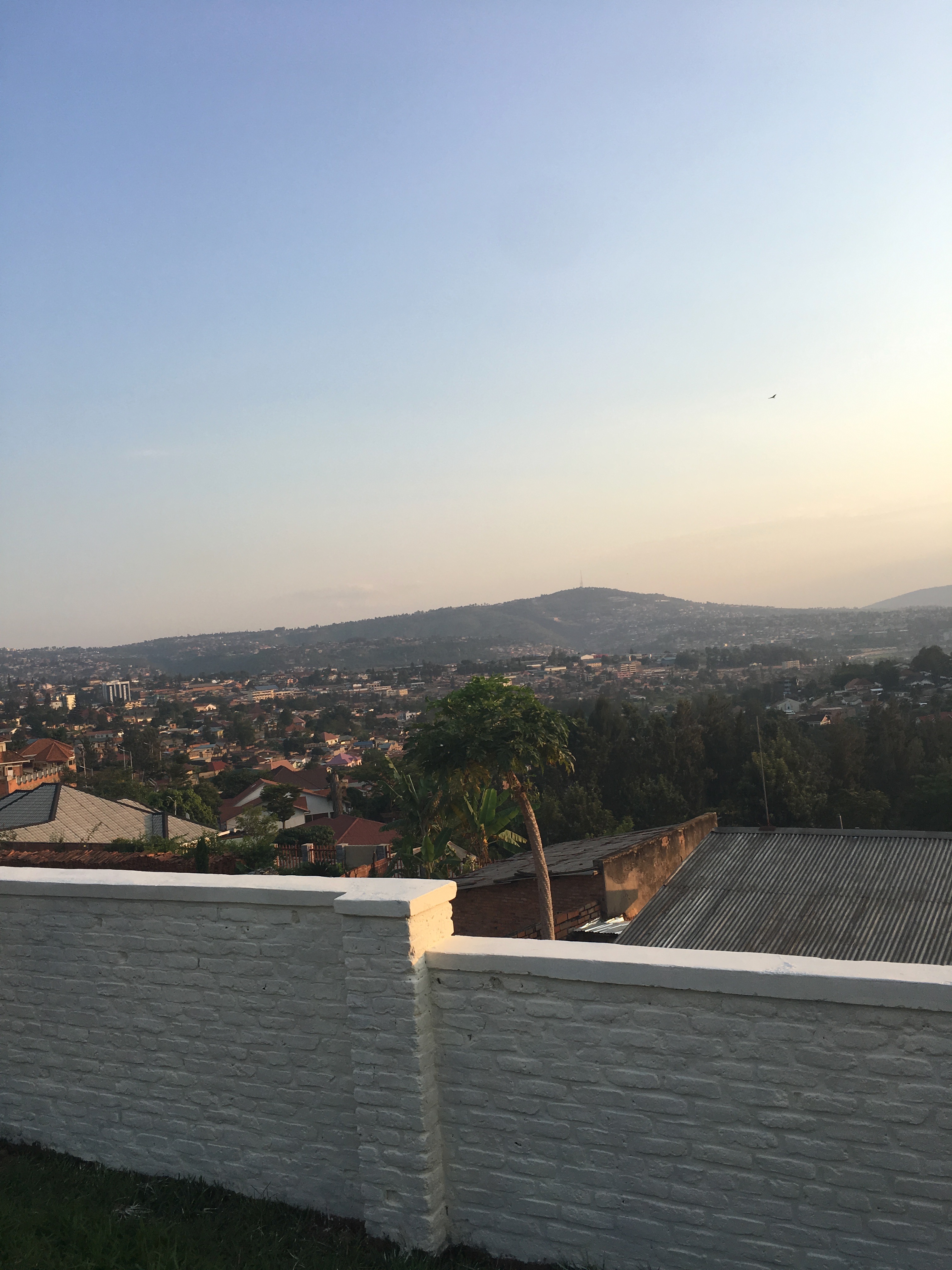 This year, I spent the Fourth of July very differently. July 1 is Rwanda’s Independence Day, and July 4 is the country’s Liberation Day. Independence Day marks the day when Rwanda was separated from Burundi and declared independent from Belgian colonial rule in 1962. This day is now regarded as largely symbolic because Belgium still had a lot of control and influence of Rwanda for many years following this formal declaration. Liberation Day, on the other hand, marks when rebel troops marched into Kigali on July 4, 1994 and ended the genocide against the Tutsi minority population. This year was the 25th anniversary of the genocide liberation.
This year, I spent the Fourth of July very differently. July 1 is Rwanda’s Independence Day, and July 4 is the country’s Liberation Day. Independence Day marks the day when Rwanda was separated from Burundi and declared independent from Belgian colonial rule in 1962. This day is now regarded as largely symbolic because Belgium still had a lot of control and influence of Rwanda for many years following this formal declaration. Liberation Day, on the other hand, marks when rebel troops marched into Kigali on July 4, 1994 and ended the genocide against the Tutsi minority population. This year was the 25th anniversary of the genocide liberation.
On July 4, a friend and I decided to take advantage of our day off from work by going for a run in the afternoon. As we stepped out of our house, we immediately noticed how eerily quiet the streets were. Usually on our runs, we struggle to weave through the hundreds of walkers and almost always have a close call with a crazy moto driver. But that day we passed maybe three people and saw two cars on the road.
In the US, the Fourth of July is unquestionably a day of celebration, but Liberation Day in Rwanda is largely a day of somber reflection. It’s easy for Americans to happily wave flags and enjoy fireworks shows because no one in America has a direct connection to the violence that accompanied our independence 200 years ago. No one can remember the sacrifices that were made to secure our freedom. Rwandans can. Nearly every Rwandan has a direct connection to the genocide. An NPR article from 2017 describes the difference perfectly: “In the United States, holidays like Independence Day feel historical. Those who died fighting the Revolutionary War are many generations in the past. In Rwanda, the history of this holiday is still within arm’s reach, even for those too young to remember.”
On Researching
The two days that we had of work this week were relatively busy. After finishing up the Rwanda Wiki last week, I started updating the Wiki page on Burundi. Unlike Rwanda, it was a bit harder to find primary sources of law and information for Burundi. The country does not have many of their laws and regulations translated into English, but, luckily, my French came in handy. I updated the information on the page for the past three years by reading and translating these documents to provide an accurate summary of the country. IBJ has an office in Burundi, so I coordinated with the program director there to edit the page before publication.
I’ll provide a short summary of my the information I found out about on Burundi. Burundi is directly to the south of Rwanda and is about the same size geographically, but is faring far worse economically and politically. According to data from the World Bank, Burundi is the second poorest country in the world. Since gaining independence in 1962, the country has experienced violent political crises and civil wars. Most recently, there has been problems with the elections of President Pierre Nkurunziza. In 2015, Nkurunziza ran for a third presidential term, which was originally unconstitutional (the Burundi Constitution states that a President can serve a maximum of two terms). After a court ruled that he could seek a third term, he won the election with 70 percent of the vote, and violence broke out. In 2018, Nkurunziza held a constitutional referendum to extend the term limits for a president again. The referendum, which was passed with a 73 percent approval rating, allows a president to serve two seven-year terms, allowing Nkurunziza to stay in office until 2034 if he wins the election in 2020.
After this referendum, violence broke out again between the government and rebel groups. The UN in 2016 released a report detailing serious human rights violations by the government. The Burundi government then released a response stating that the UN report was biased and denying all of the alleged human rights violations. A few months later, Burundi became the first country to leave the International Criminal Court (ICC), which prosecutes international crimes against humanity. Burundi is now shutting down UN human rights offices in the country.
I also looked at rights for accused and detained people and prison statistics. The Constitution includes common rights for detained and accused people, such as the right to be presumed innocent and the right to a lawyer. However, these rights are not being used in practice. The prison system is operating at 262 percent capacity, and almost 50 percent of prisoners are pre-trial detainees or remand prisoners awaiting trial. The ICC reported that over 430 people have been killed, at least 3,400 arrested and over 230,000 forced to seek refuge in another country since April 2016.
On Traveling
This weekend, I traveled to Zanzibar with my two roommates. Zanzibar is a semi-autonomous collection of islands just off the coast of Tanzania. It’s made up of two large islands - Pemba and Unguja. Although Zanzibar belongs to Tanzania, the island has its own president and parliament, similar to the relationship between Hong Kong and China. We stayed on Pemba, close to Stone Town, which is the center of the island. On Friday, we 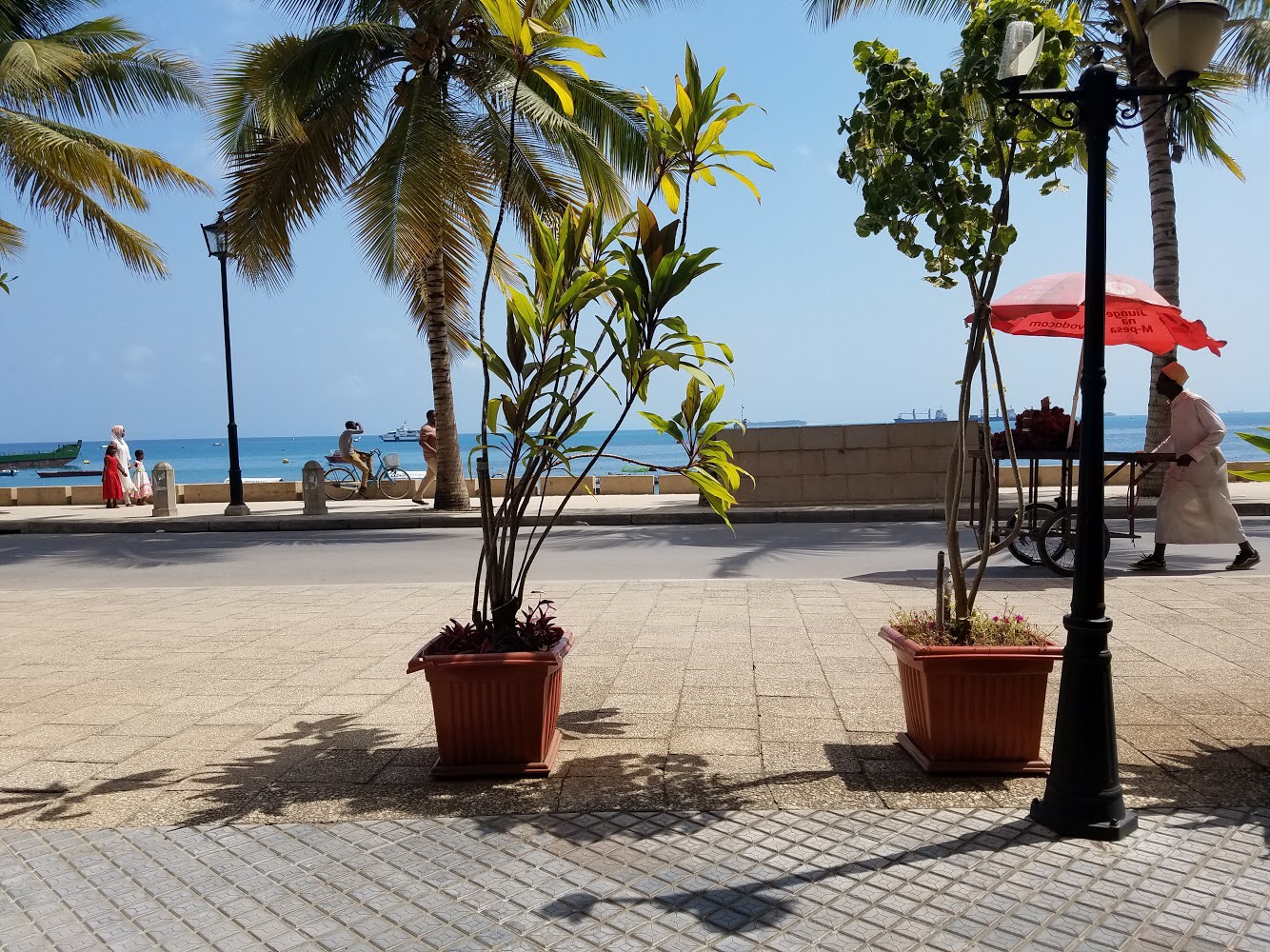 arrived in Stone Town to start exploring the island. Stone Town is a UNESCO World Heritage Site and home to some amazing history. Originally, the island was used as a base for voyagers traveling along the Swahili Coast to trade spices. Although the island didn’t naturally have many products of value, European settlers soon developed huge plantations to grow spices and participate in the trade. As we wandered through the tiny alleyways blocking the view of the ocean, it was hard to remember we were in East Africa. The island has a lot of Southern European and Arabic influence. Portugal was the first European country to colonize the island, and Omani and Yemeni people established the economy through trading and cash crops.
arrived in Stone Town to start exploring the island. Stone Town is a UNESCO World Heritage Site and home to some amazing history. Originally, the island was used as a base for voyagers traveling along the Swahili Coast to trade spices. Although the island didn’t naturally have many products of value, European settlers soon developed huge plantations to grow spices and participate in the trade. As we wandered through the tiny alleyways blocking the view of the ocean, it was hard to remember we were in East Africa. The island has a lot of Southern European and Arabic influence. Portugal was the first European country to colonize the island, and Omani and Yemeni people established the economy through trading and cash crops. 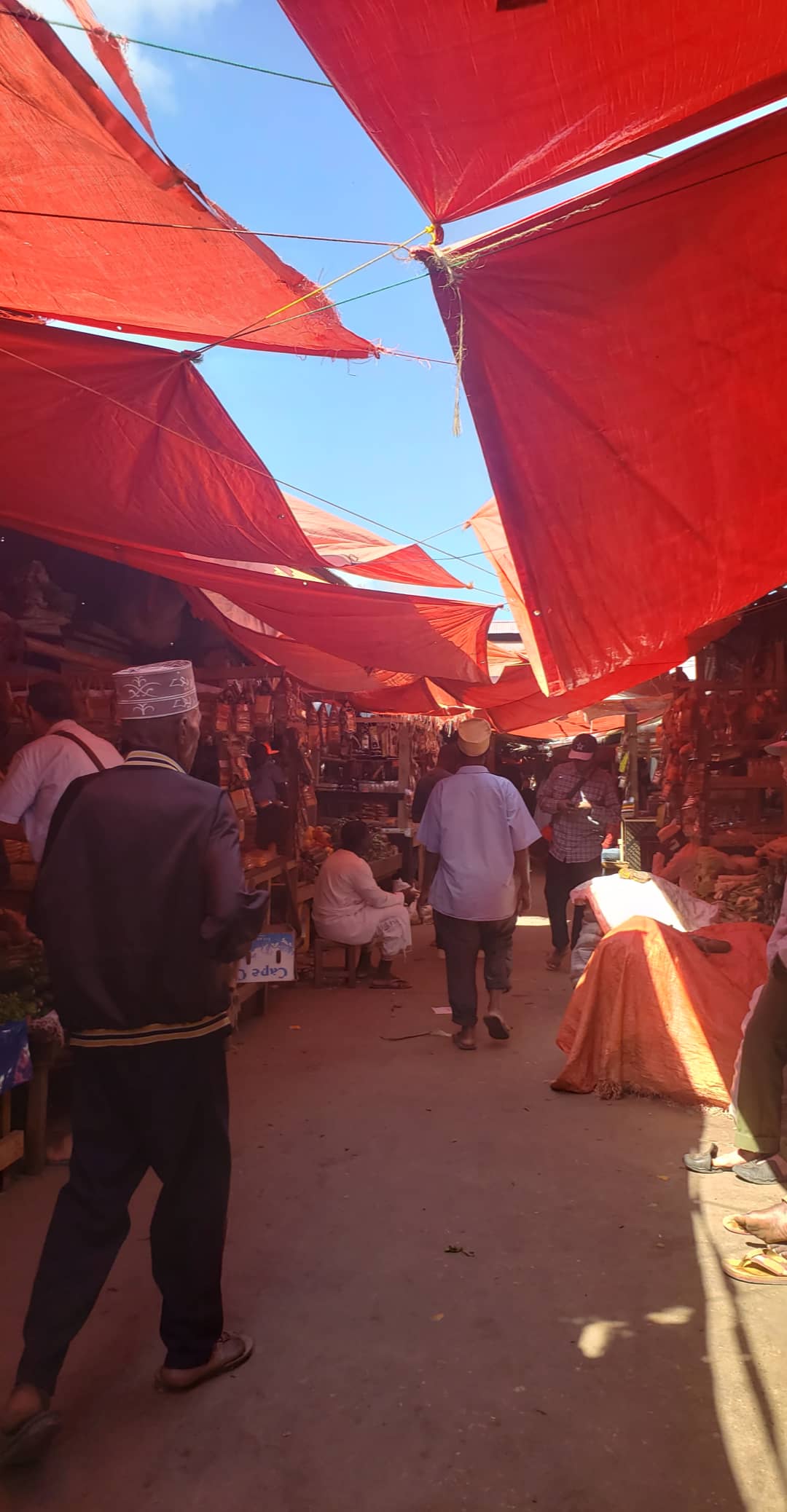 Up until 1963, Zanzibar was ruled by a sultan from Oman. The island today is home to some of the first mosques built in Africa, and there is still a predominantly Muslim population. While walking around, we noticed some of the hallmarks of an East African country, like the outside markets and mopeds, but we also noticed many more people of Arabic and Indian descent. The tiny cobblestoned streets reminded me a little bit of a coastal Spanish town I visited a few years ago. It was a world of difference from Kigali.
Up until 1963, Zanzibar was ruled by a sultan from Oman. The island today is home to some of the first mosques built in Africa, and there is still a predominantly Muslim population. While walking around, we noticed some of the hallmarks of an East African country, like the outside markets and mopeds, but we also noticed many more people of Arabic and Indian descent. The tiny cobblestoned streets reminded me a little bit of a coastal Spanish town I visited a few years ago. It was a world of difference from Kigali.
On Saturday, our host took us to his water sports center he owned on the 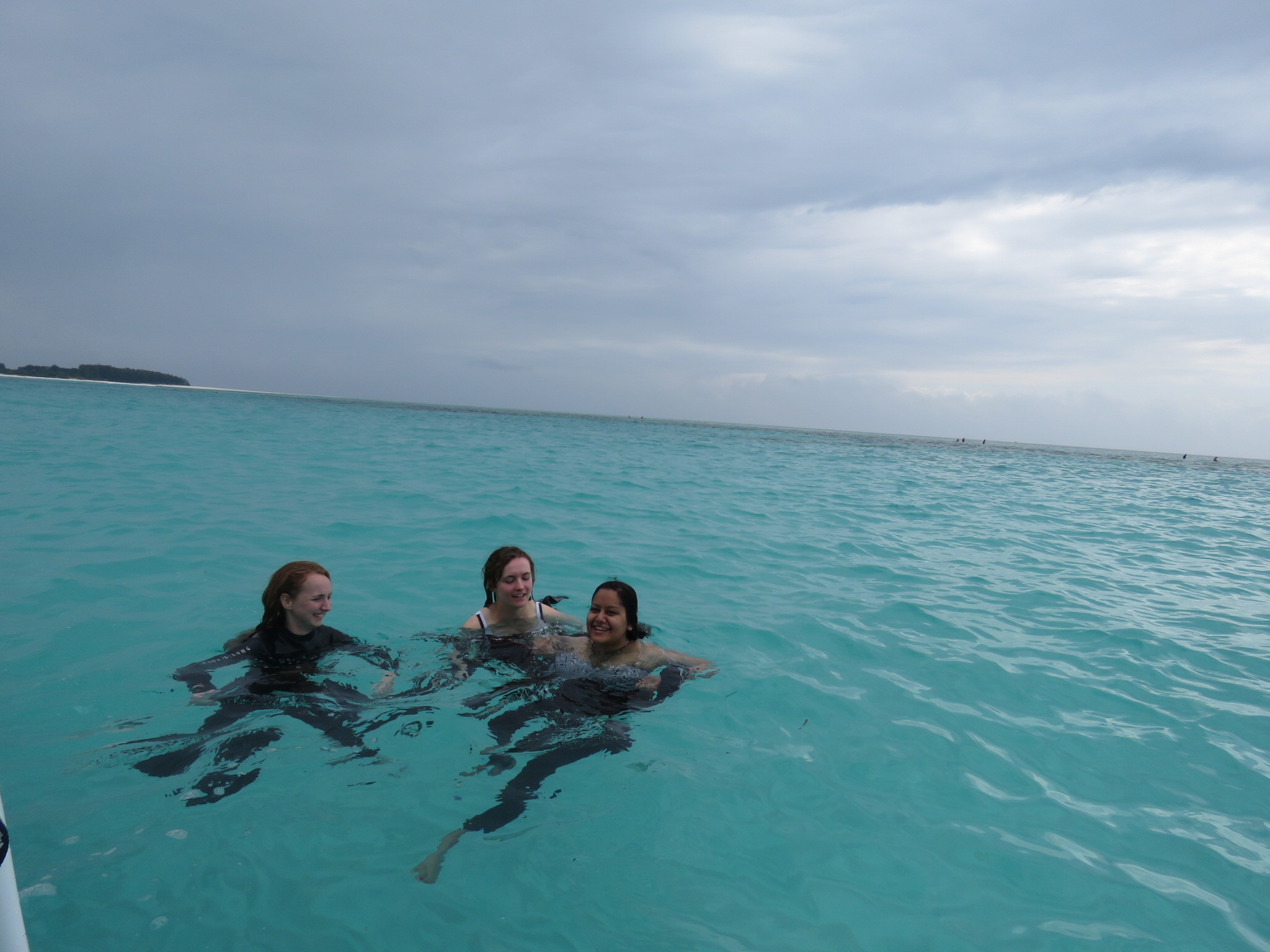 northern coast of the island. We enjoyed a full day of snorkeling, swimming, and jet skiing in the turquoise blue water. It was almost unnerving for me to enjoy the warm temperature of the water, which is impossible to do in the frigid water of Lake Michigan or the Atlantic Ocean! I’m used to holding my breath as I dive into a wave in an attempt to get used to the ice cold temperature. This water was as warm as a bath, and I just wanted to float in it forever.
northern coast of the island. We enjoyed a full day of snorkeling, swimming, and jet skiing in the turquoise blue water. It was almost unnerving for me to enjoy the warm temperature of the water, which is impossible to do in the frigid water of Lake Michigan or the Atlantic Ocean! I’m used to holding my breath as I dive into a wave in an attempt to get used to the ice cold temperature. This water was as warm as a bath, and I just wanted to float in it forever.
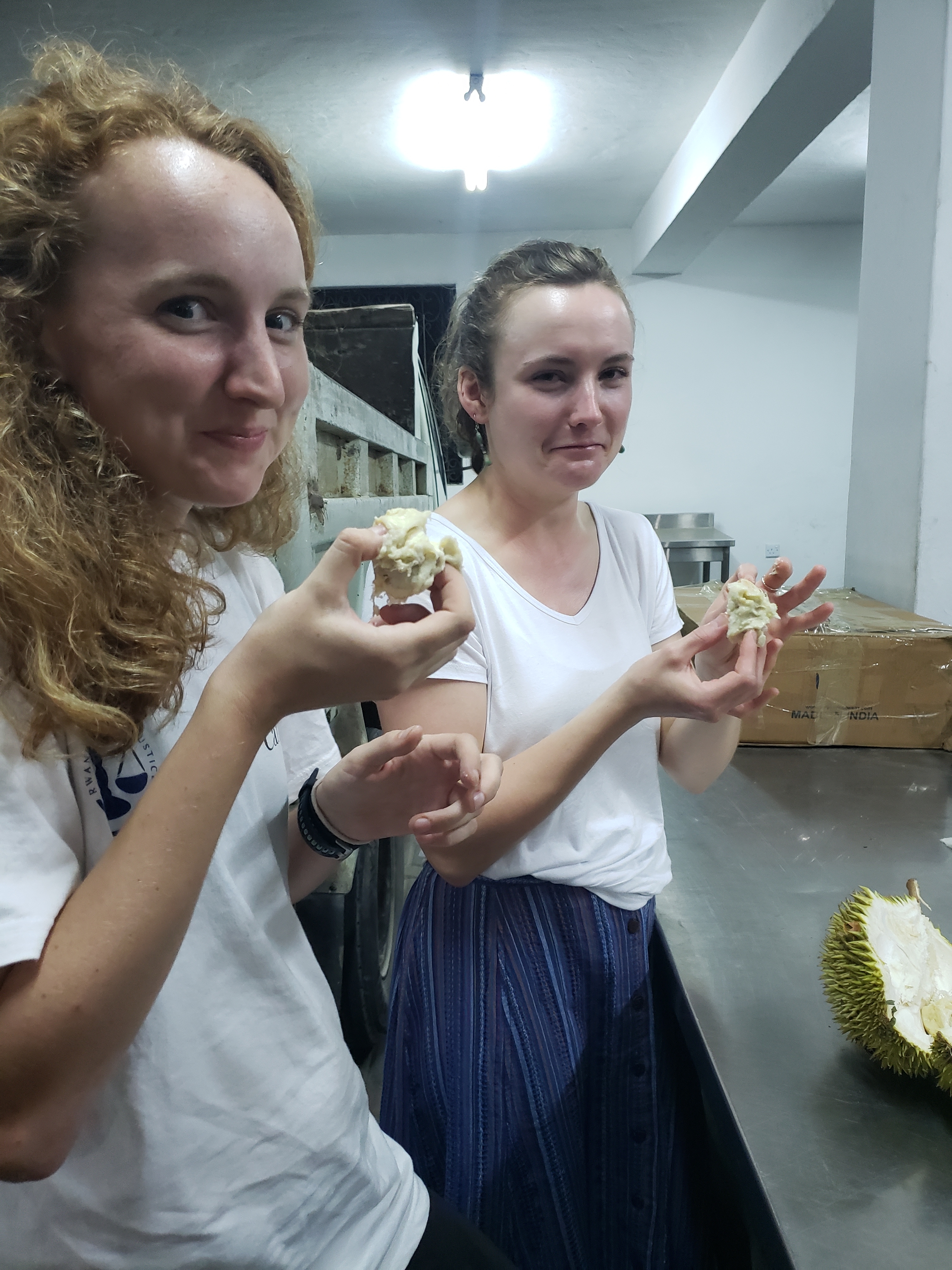 That night when we returned, our host, Jeff, brought us to his house for a meal filled with seafood and tropical fruits. One fruit we tried was dorian. I was a bit turned off by it at first glance because it was a huge green, spiky ball that had an odd stench coming off of it. As I was examining it, Jeff put it down on the ground and started hopping on it. He explained that this was how to check if it was ripe or not. After he determined that it was ripe (don’t ask me how he knew), he put it on the table and cut it open. He dug his hands into the fruit and pulled out a mango-sized seed covered with white goo, which he immediately ate. “Try it,” he prompted us. “It tastes like ice cream!” Being deprived of ice cream for a few months, this was a persuasive selling point for me. I picked up one of the seeds, and tentatively ate the goo. It did not taste like ice cream; it was disgusting. Although Jeff was a bit disappointed that we didn’t like it, he praised us for being brave enough to try it. On Sunday, we caught a ferry back to Dar es Salaam (the main city on the coast of Tanzania) to catch our flight back to Kigali.
That night when we returned, our host, Jeff, brought us to his house for a meal filled with seafood and tropical fruits. One fruit we tried was dorian. I was a bit turned off by it at first glance because it was a huge green, spiky ball that had an odd stench coming off of it. As I was examining it, Jeff put it down on the ground and started hopping on it. He explained that this was how to check if it was ripe or not. After he determined that it was ripe (don’t ask me how he knew), he put it on the table and cut it open. He dug his hands into the fruit and pulled out a mango-sized seed covered with white goo, which he immediately ate. “Try it,” he prompted us. “It tastes like ice cream!” Being deprived of ice cream for a few months, this was a persuasive selling point for me. I picked up one of the seeds, and tentatively ate the goo. It did not taste like ice cream; it was disgusting. Although Jeff was a bit disappointed that we didn’t like it, he praised us for being brave enough to try it. On Sunday, we caught a ferry back to Dar es Salaam (the main city on the coast of Tanzania) to catch our flight back to Kigali.
On Reflection
Despite our fun adventures in Zanzibar, one of the things that we couldn’t avoid was the extreme dichotomy of wealth. Every moment of this trip, we were forced to confront the socioeconomic disparities on the island. In Zanzibar as a whole, the poverty rate is 30.4%, but on Pemba, 55% of the population lives below the poverty 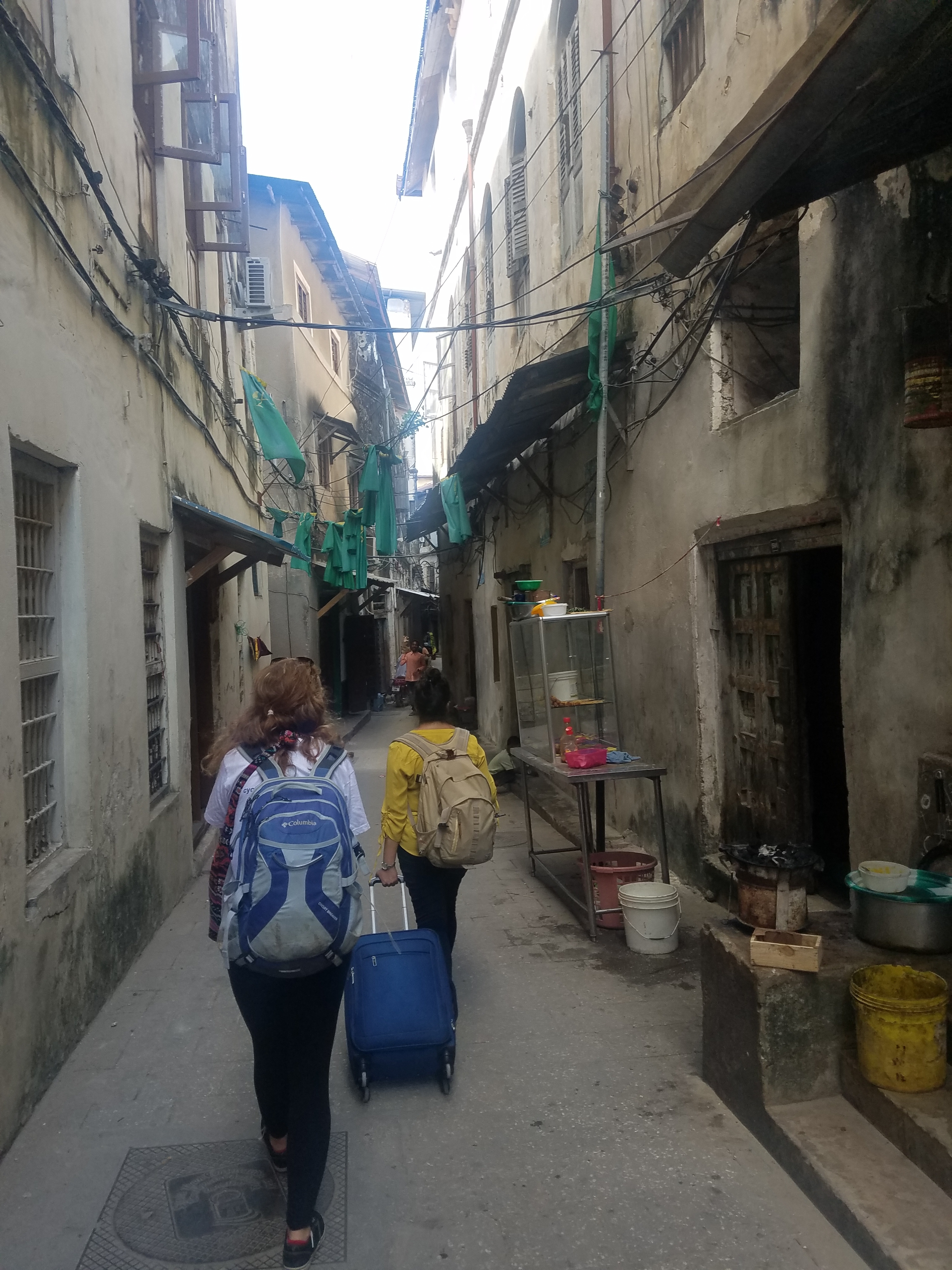 line. The sheer amount of people living in poverty on the island means that it is very visible. Most of the beaches, except for resorts on private islands, are public. At lunch, as we lounged at the restaurant of a beach resort, eating our lobster and looking out at the ocean, we saw villagers on the sand bars revealed during low tide, searching for crabs and fish to eat that night. I suddenly became very aware of my societal position. In the US, the poor are often pushed to certain parts of a city or town due to gentrification. Wealthy and poor people don’t come into contact much because they live in entirely different places, and the poor are kept out of eyesight because of private property laws. In Zanzibar, everyone lives in the same community. Right across the street from our Airbnb (a luxury apartment complex with a pool), there were houses made of wood and piles of trash along the side of the road.
line. The sheer amount of people living in poverty on the island means that it is very visible. Most of the beaches, except for resorts on private islands, are public. At lunch, as we lounged at the restaurant of a beach resort, eating our lobster and looking out at the ocean, we saw villagers on the sand bars revealed during low tide, searching for crabs and fish to eat that night. I suddenly became very aware of my societal position. In the US, the poor are often pushed to certain parts of a city or town due to gentrification. Wealthy and poor people don’t come into contact much because they live in entirely different places, and the poor are kept out of eyesight because of private property laws. In Zanzibar, everyone lives in the same community. Right across the street from our Airbnb (a luxury apartment complex with a pool), there were houses made of wood and piles of trash along the side of the road.
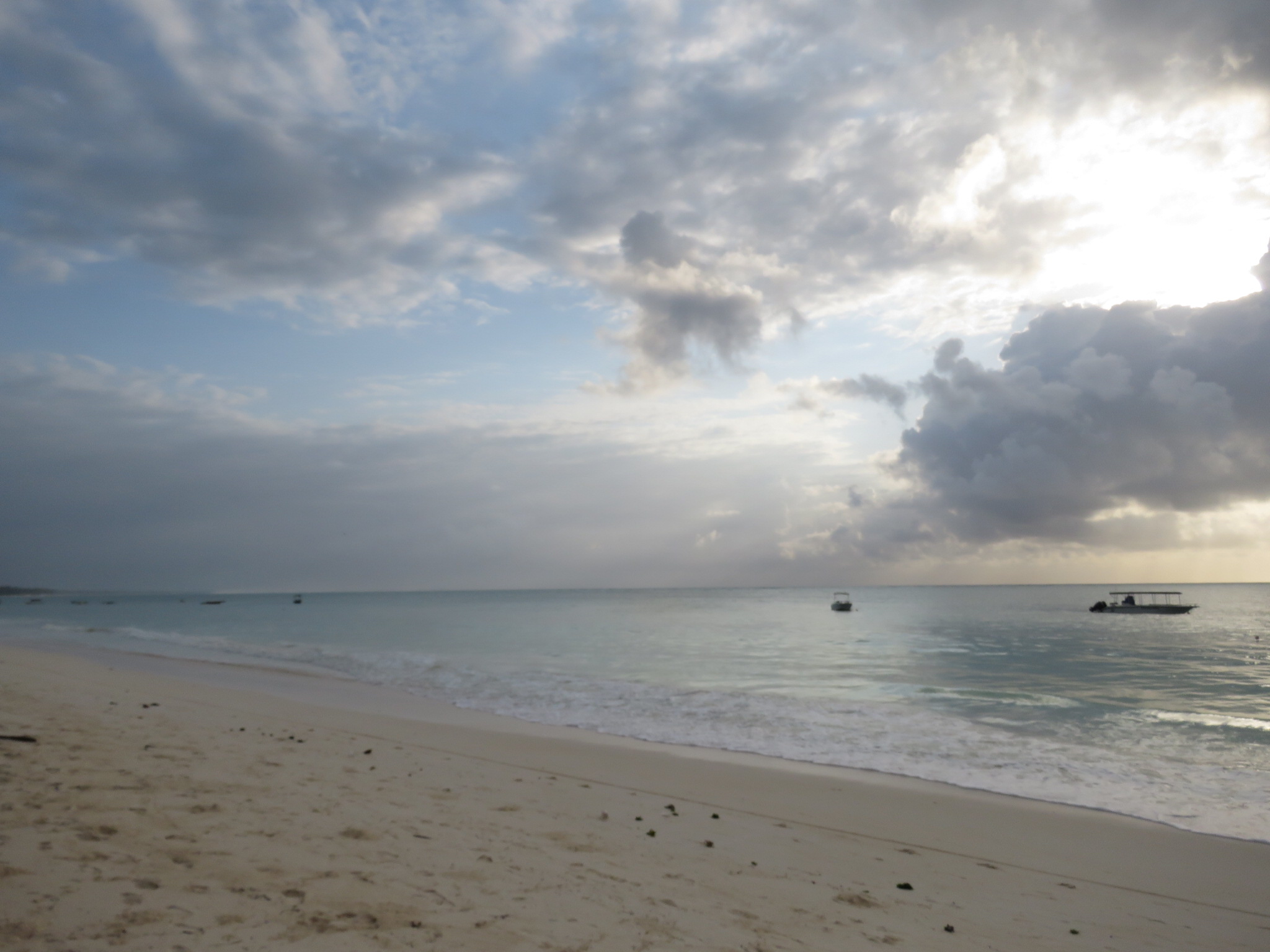 Ever since I arrived in Rwanda, I’ve been hearing about how different it is compared to other East African countries. “Rwanda is like a bubble,” I’d hear people say. I didn’t really understand what this meant until I traveled to Tanzania. Rwanda, especially Kigali, has made extreme economic, political and social progress in the past few years. Living here is easy, and I take it for granted. As I discussed last week, this summer has expanded my worldview in ways I hadn’t anticipated. I figured that I had a good grasp of what this world entailed, but I’m slowly realizing that I really have no idea, and that’s ok.
Ever since I arrived in Rwanda, I’ve been hearing about how different it is compared to other East African countries. “Rwanda is like a bubble,” I’d hear people say. I didn’t really understand what this meant until I traveled to Tanzania. Rwanda, especially Kigali, has made extreme economic, political and social progress in the past few years. Living here is easy, and I take it for granted. As I discussed last week, this summer has expanded my worldview in ways I hadn’t anticipated. I figured that I had a good grasp of what this world entailed, but I’m slowly realizing that I really have no idea, and that’s ok.